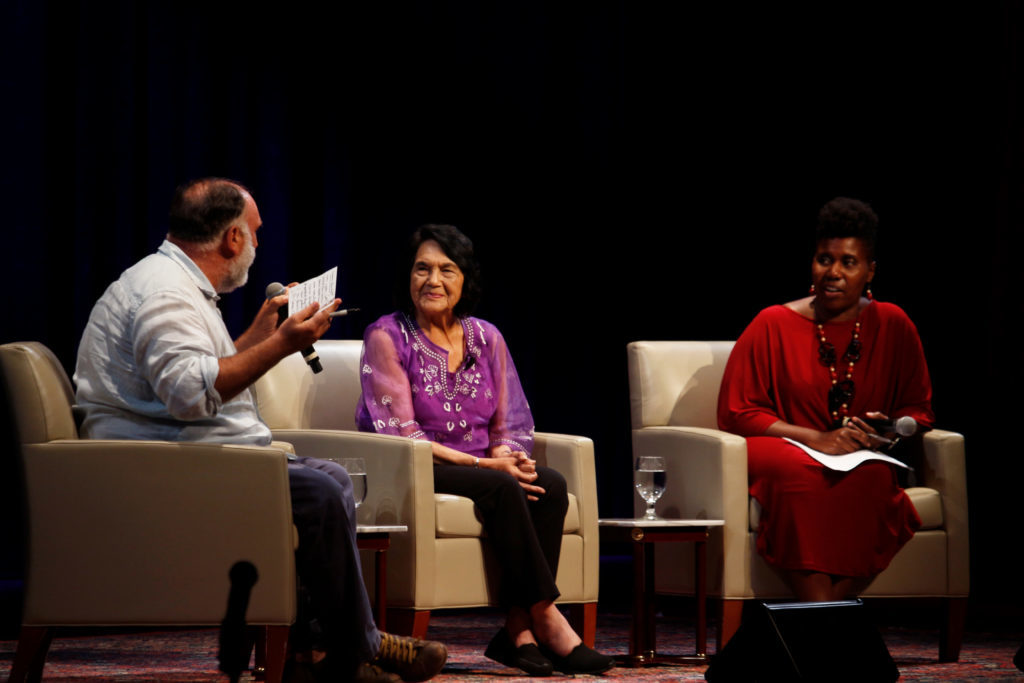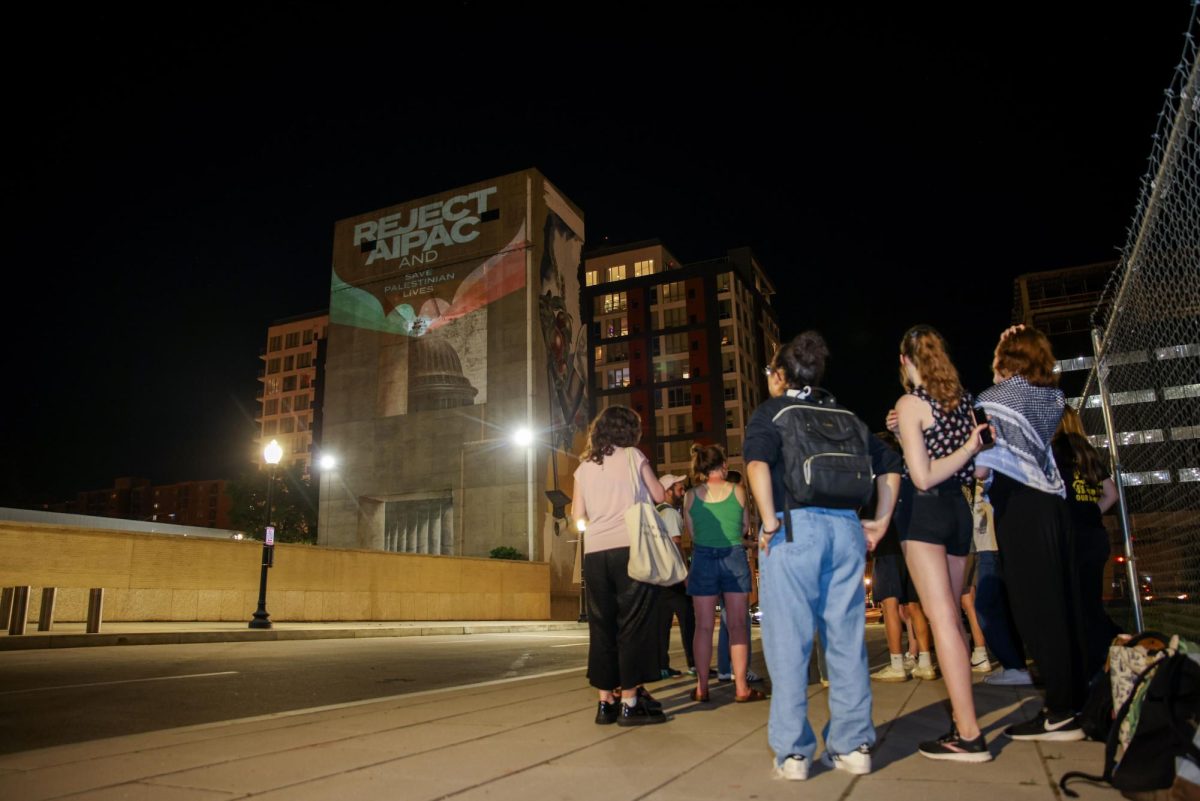Updated: Sept. 12, 2019 at 4:08 p.m.
Celebrity chef José Andrés and civil rights activist Dolores Huerta discussed the interplay between immigrant labor and food at Lisner Auditorium Tuesday.
Huerta, who co-founded what is now United Farm Workers – a labor union for agricultural laborers – with César Chávez in 1962, kicked off the talk about the connection between food and fair labor practices before being joined by Andrés, a former commencement speaker who teaches a course at GW. The conversation – which was moderated by Imani Cheers, an associate professor of media and public affairs – was part of Andrés’ class, World on a Plate.
*Andrés said people are “happy” when they can buy cheap food but implored the audience to recognize that “very” cheap food can mean that someone whose labor contributed to the food’s production isn’t receiving a fair wage or benefits. He said that just pay and humane treatment “shouldn’t be negotiable.”
“When things are cheap, something down is not working, somebody else is not getting paid, somebody else is not making it,” Andrés said.
Andrés also explained his course – which delves into the relationship between food and society – by likening it to a “conversation” with the ingredients on your plate. He said the vegetables on your plate, for example, may have cause for concern because they’re “being picked by people being mistreated.”
Huerta said issues surrounding labor rights, particularly for farmworkers, can be traced back to slavery – when people worked for nothing.
“We’re still struggling with those issues of racism today as they affect farmworkers and also as they affect our food,” she said.
Huerta said that when she’s negotiated with agricultural businesses, she sometimes felt “bothered” because they viewed food solely as a means for profit. She added that the world has enough resources to feed everybody, but that agriculture’s “philosophy” is to reduce food production or throw it away if money is not being made.
“Food is sacred,” Huerta said. “Food is what keeps us alive, and to think of referring to food in that kind of way – I thought, ‘What about we don’t think of food as a deal or a way to make a lot of money, but what if we think of food just as a way to give nutrition?’”
Huerta said not all people of color labeled as immigrants crossed the border, adding that for several people who existed in the land “before the border” that the “border crossed us.”
“I kind of have to remind people – when people came to the United States, the country was brown already, OK?” she said. “It was already brown, so when they tell us, ‘Go back where you came from,’ we have to say, ‘Hey, we are where we came from.’”
Huerta said she feels sorry that President Donald Trump lacked the “privilege” she had of growing up surrounded by ethnic diversity and having a chance to work.
“If you don’t do that, then you don’t respect other people that are out there working with their hands,” Huerta said.
Huerta said a democracy can only function if people remain involved. She led the audience in a chant of “Sí se puede,” a phrase Huerta popularized that means “Yes we can” in Spanish.
“We’ve got the power but we’ve got to exert our power, we’ve got to become active, we’ve got to pick up the phone or send that email or join that protest, whatever,” she said. “We have to save our democracy.”





